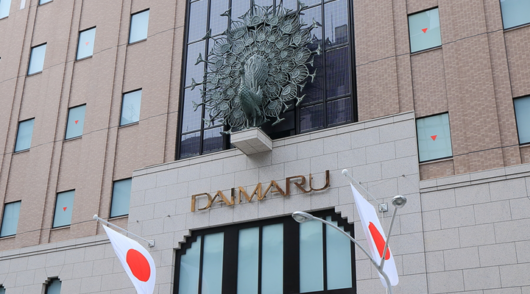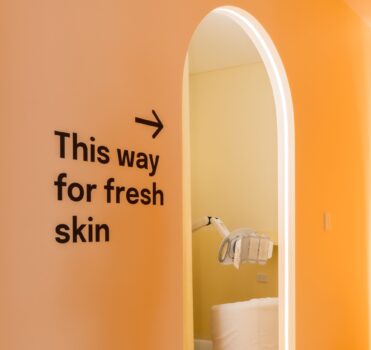 Dark supermarkets are online distribution centres, set up like supermarkets but without the customers. The items go straight from the distribution centre to consumers to avoid over-handling. The centres are more efficient than normal supermarkets, as customers and packers do not get in each other’s way.
Dark supermarkets are online distribution centres, set up like supermarkets but without the customers. The items go straight from the distribution centre to consumers to avoid over-handling. The centres are more efficient than normal supermarkets, as customers and packers do not get in each other’s way.
According to Queensland University of Technology’s Professor Gary Mortimer, the growth of dark stores in Australia has been relatively slow in comparison to countries like England, largely because of the slow uptake of online grocery shopping.
Meanwhile, England has been forced to evolve relatively quickly, due to the increased number of supermarket players in the market, including both major French and German competitors.
According to Woolworths chairman Gordon Cairns, it is critical the grocer continues to improve its online customer offer and plans are currently underway for the launch of five dark stores by the end of the year
“We want to be obsessive about our customers, their needs and how we serve them better,” Cairns says. “If we do not, we will lose out to those who do, like Amazon.”
Meanwhile, Coles has kept relatively quiet about whether it plans to expand its dark stores. So far, there are only two – one in Richmond, Victoria, and the other in Alexandria, New South Wales.
“Our online-only stores are closed to the public so our team members can move around efficiently,” says a spokesperson.
Online shake-up
Hays recruitment company regional director Austin Blackburne says that while Amazon has not announced any solid plans to introduce AmazonFresh to Australia, its arrival will shake up online shopping behaviour, including grocery. However, main cities like Sydney and Melbourne with their urban sprawl will see logistics continue to be a tough challenge.
“If Amazon could set up a massive warehouse in Port Melbourne, it would be different, but real estate prices really do play a big part in the adoption rate. It is a real barrier.”
But according to Colliers director of project leasing George Wragge, dark stores have become more prevalent lately, as supermarket chains need to keep up with consumer demands. While there is an issue with urban sprawl and population density, dark supermarkets could be the answer.
“With access to sites for full-line supermarkets becoming increasingly scarce, supermarkets have had to turn to efficiencies in logistics,” says Wragge. “Further, negating often arduous, if not impossible, zoning requirements, dark supermarkets give businesses a chance to keep up with demand from areas with significant population growth.”
Price barrier
According to Blackburne, high property prices may push many supermarkets into looking at doing their own developments.
“Securing sites is incredibly difficult. This poses a real problem for infrastructure models that have worked well overseas because property prices here are extreme,” he explains.
“Supermarkets need to be a bit inventive. Property prices have been the main barrier, even if Coles and Woolworths have secured sites. It is not at the level of progression you would expect.”
Adds Edward Washer of property consultant JLL: “One of the key drivers in the industrial market is the diversity of tenants seeking space. For an ecommerce asset to be viable, it needs to be near key locations and meet retailers’ required delivery times.”
Dark stores offer efficiency for supermarkets and ensure customer needs are being met. Suppliers are not largely impacted in the scheme of things, but can be assured their products are not being overly handled and will be sold at a higher pace online.
While dark stores and online grocery shopping have risen in popularity, there are consumer concerns around buying food online. Some people worry that a sense of community is being lost, along with the rise in obesity and people being less mobile.
“There is the argument that it is good for people to leave the house, meet people at the supermarket and be mobile. But the truth is, people are very time poor and online groceries can be helpful,” says Blackburne.
Signed, sealed and delivered
While Australians have been slow to adopt online grocery shopping, the demand for food delivery has skyrocketed, which Blackburne believes will help eventually drive consumers’ interest in dark kitchens.
“I think maybe after that, people will accept online groceries a bit more,” Blackburne says.
Deliveroo has already tested the concept in Britain, the Netherlands and Dubai, and is set to launch in Australia. Reports suggest the delivery company’s Australian commercial kitchen would allow up to 10 restaurants to provide their own staff and ingredients.
Unlike dark stores, the format does not belong to one retailer in particular, but instead provides several brands with the opportunity to use the premises and test ideas.





